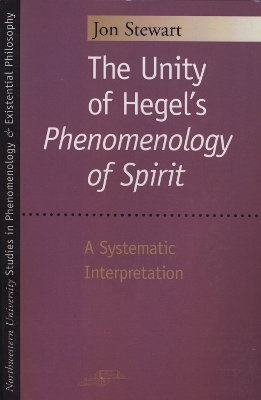Hegel's Phenomenology is considered by many to be the most difficult book in the philosophical canon. While some authors have published excellent essays on various chapters and aspects of the book, few authors have successfully tackled the whole.In The Unity of Hegel's Phenomenology of Spirit, Jon Stewart interprets Hegel's work as a dialectical transformation of Kantian transcendental philosophy, providing from this unified standpoint a case for Hegel's own conception of philosophy as a system. In restoring them to their larger systematic contexts, Stewart clarifies Hegel's individual analyses, as well as indicating the meaning and significance of the transitions...
Read more
In The Unity of Hegel's Phenomenology of Spirit, Jon Stewart interprets Hegel's work as a dialectical transformation of Kantian transcendental philosophy, providing from this unified standpoint a case for Hegel's own conception of philosophy as a system. In restoring them to their larger systematic contexts, Stewart clarifies Hegel's individual analyses, as well as indicating the meaning and significance of the transitions and illustrating the parallelisms between the respective analyses. Many of Hegel's main themes-
universal-particular, mediacy-immediacy-are traced through the text, demonstrating Hegel's formal continuity.
By examining at the microlevel the particulars of the dialectical movement, and by analyzing at the macrolevel the role of the argument in question in the context of the work as a whole, Stewart provides a detailed analysis of the Phenomenology and a significant scholarly demonstration of Hegel's own conception of the Phenomenology as a part of a systematic philosophy.
- ISBN13 9780810128040
- Publish Date 31 August 2011 (first published 18 August 1999)
- Publish Status Active
- Publish Country US
- Imprint Northwestern University Press
- Format Paperback
- Pages 440
- Language English
